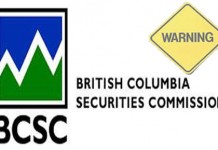She led Germany through the most worrying days of Europe’s sovereign debt crisis and was rewarded for this by voters this weekend at the ballot box. This was the first national election since Europe’s debt crisis hit the headlines, calling into question the future stability, or even existence of the single currency. It is estimated that Angela Merkel’s Conservative party managed to get around 42% of this weekend’s vote. German’s have seen fit to reward her for her uncompromising stance on Europe’s debtor nations and this has earned her a third term in office. When the numbers are finally confirmed it is looking like the strongest results for Germany’s conservative party in many years. In a recent speech she said:
“We’ll do all we can in the next few years to make them successful for Germany, we have to wait for the election results, it’s too early to say how to proceed, we will discuss it all when we have the final results but this is a day we should celebrate.”
What still remains a mystery until all the votes are tallied up, is who exactly Merkel will have to work with. Merkel’s conservative party stand a chance of having secured an absolute majority win, in which case Merkel will not need to share power with anyone else. This is a very unusual outcome for German politics and hasn’t taken place since 1957. The leaders of Merkel’s former coalition partner, the FDP, have had to contend with their worst ever result, at around 4.7 percent, which is below even the 5% figure required of them to remain in parliament. It is looking increasingly likely that Merkel will now have to enter into a partnership with the Social Democrats again, having previously entered into a coalition with them between 2005 and 2009. Negotiations are likely to be on-going, for several months at least, and the new government may adopt more fiscally liberal policies such as increased taxes for high earners and a minimum wage. Outside the country many onlookers are hoping that the coalition will urge Merkel to soften her stance towards the weaker southern European nations.
What further confused matters was a strong turnout for the new Euro-skeptic party, their own results were around 4.9 percent, which almost granted them entry to the German parliament.
The markets are still mulling over the news from Europe’s engine room having experienced a brief rise upon the opening of the Asian session. It is unlikely that Berlin will change its attitude towards Europe’s bailout nations, but with this following year set to be the one where Europe’s richer economies like France are put under the economic spotlight, we can expect drops in the value of the euro against a basket of currencies if the fundamentals don’t significantly improve for the union.

















